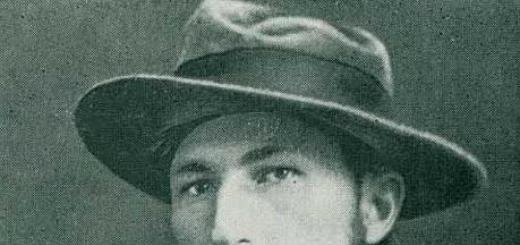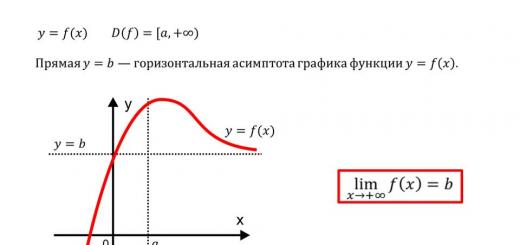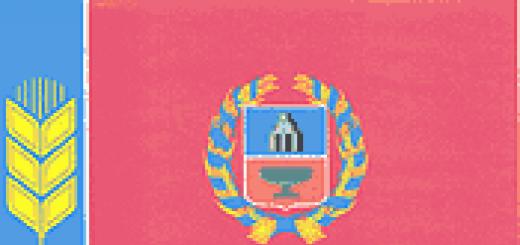People are not alike. Everyone has their own model of behavior in society. Someone easily gets along with people, finds common topics, and encourages the interlocutor to communicate. Another person looks closely at those around him for a long time, carefully selects the object of communication, thinks about the course of the conversation, and so on.
It all depends on the character. Character is a person’s model of behavior, his reaction to the world, his internal state. Character is formed as a result of hereditary qualities and upbringing.
A person lives in a society of people and his attitude towards others plays a significant role. The quality of life of society and its civilization depend on this.
Sociability, kindness, responsiveness. It is difficult and unpleasant to communicate with a rude, indifferent, cynical person.
To live, everyone must work, thereby obtaining a livelihood for themselves and their families.
Certain character traits help you succeed in this.
To achieve success, you must have certain talents - creative thinking, perseverance, hard work, courage in decision making. They value people who are proactive and conscientious. In teamwork, it is important to trust employees. Efficiency is a valuable quality.
Character can be changed because it is influenced by the communication environment.
For example, a non-obligatory person who takes these promises lightly can turn into a responsible employee if the success of the enterprise and the lives of other people depend on his decisions and actions. This is especially evident in the professions of firefighters, doctors, judges, where the destinies and lives of people are decided.
Kretschmer gave an original classification of human character according to body type:
Picnics are strong people at a certain stage of obesity. Facial features are disproportionate to body parts, small. They are sociable, positive, generous. Negative character traits include a tendency to depression in difficult life situations.
Asthenics are thin, tall individuals with a long face. These are closed, uncommunicative people. They prefer loneliness and are often rude, greedy, and stubborn. But it is asthenics who have a developed mind and talent for science.
Athletic people are physically developed and attractive, but not emotional people. Among them there are both good and evil.
Negative character traits
There are people who try to make money in dubious ways. At the same time, people who trusted the deceiver suffer from deception and are held responsible for the result of dishonest behavior.
A person’s successes and failures largely depend on what place he assigns to you in society. If he behaves confidently and calmly, this evokes respect and sympathy. A person who adequately responds to constructive criticism and behaves with dignity is liked.
A person should cherish and appreciate the good things he has
Modesty, as we know, is also one of the most worthy personality traits.
Mutual assistance is only good if it comes from a pure heart, without expectation of reciprocal action. A person must cherish and appreciate the good things that he has. You cannot demand and expect incredible luck from life without doing anything to achieve great results. , but without stinginess.
The role of education in the development of character
Plays a big role in shaping a person’s character. From childhood, a child follows the example of his parents. If they behave incorrectly towards loved ones, towards work, towards politics, the child absorbs all this and learns the wrong model of behavior. Over time, this model develops into a character.



Growing up, a person introduces into his behavior the views instilled in him by his father and mother. A child should be brought up with open, simple and logical ideas about life for him to understand. If adults say one thing and do the opposite, the child becomes lost in concepts and becomes hypocritical. At first he cannot understand this situation. But since adults do not clearly explain to him why they lie, he accepts this model of behavior and also learns to lie.
Temperament and character
These concepts are related, but not identical. Temperament is related to the human psyche. These are his innate characteristics. The diversity of personality types forms special personal relationships in society. If character is formed in an environment of communication, then a person is born with a special temperament. It can be guessed in a person from a very early age by behavior.
There are 4 types of temperaments:
Melancholic people are vulnerable, nervous people. They find it difficult to get along with people and do not like to share their problems. They often become depressed; if this condition is not helped, a melancholic person may commit suicide. Such people are influenced by the environment. If there are kind people around a melancholic person, he feels great. Scientists, artists, and writers often have this temperament. Such children do not like noisy games.

Cholerics are sociable, active, and inquisitive. The energy of a choleric child must be directed in the right direction. He must attend sports sections and dance clubs. Otherwise, his activity may find a way out in bad, thoughtless actions. Choleric people are born leaders; they strive to stand out from the crowd and lead. They have a certain tenacity, they can be greedy, some strive for quick dishonest earnings. Cholerics are prone to transformation, and there are many talented actors among them. The tendency to pretend is evident from childhood.


Sanguine people are balanced, calm people. You can rely on them - in a difficult situation they will always find a way out. They are not afraid of difficulties and are rarely exposed to bad habits. They use common sense in everything. Sanguine people do not like loneliness, they like to communicate with people, they have a good sense of humor. They have almost no negative character traits.
Phlegmatic people are mentally stable. Their strengths are intelligence. Restraint, composure. They do not like sudden changes in life.
There must be a golden mean in character. It is necessary to distinguish in assessing a person:
- thrift from greed,
- modesty from isolation,
- restraint from indifference.
Before we begin to classify and list character traits, it is necessary to understand what character is. In Greek, “character” is a difference, a sign, a sign. From the point of view of psychology, character is a certain set of personal properties that determine a person’s actions in various situations and form him as an individual.
There is an ancient saying: “If you sow an action, you will reap a habit; if you sow a habit, you will reap a character; if you sow a character, you will reap a destiny.” This saying briefly and succinctly reflects the place that character occupies in the life and destiny of a person. Therefore, it is so important to know what character traits people have in order to learn to understand their influence on the resolution of various, and especially conflict, situations.
Classification of character traits
Conventionally, character traits can be divided into three main groups:
- emotional;
- strong-willed;
- intellectual.
According to the direction of impact, traits are also divided into the following subgroups:
- attitude towards the outside world - people and society;
- attitude towards oneself personally;
- attitude to activity - learning and work.
The most basic character traits, especially those that belong to the emotional group, are formed in early childhood - at the stage of formation of the child’s psyche and depend on many factors. An important role is played by a person’s natural predisposition, which is influenced by hereditary characteristics and temperament. But the main influence is the environment.
It is in childhood that positive and negative character traits of a person are formed in the process of acquiring experience in interacting with the outside world. Then, throughout life, the formation of individual traits continues, and new ones may appear. And if at first this process occurs at an unconscious, reflexive level, then with the acquisition of awareness, and depending on its level, a person has a choice. When this choice is realized, the opportunity opens up for transformation of character, which is otherwise called personal growth.
Basic character traits
Today there are several hundred definitions of various character traits. Moreover, they can coexist in one person in a variety of combinations. Depending on the direction of influence, such traits can have both positive and negative consequences of their influence. Therefore, it is very difficult to say with one hundred percent certainty that these are bad character traits and these are good. In most cases, it makes sense to talk about certain sets of properties that in a certain situation can have a great influence on the consequences of solving certain problems, defined as positive or negative, which again will be a subjective opinion to a certain extent.
And yet, let’s try to compile a list of the main character traits that are formed in the early stages of development and therefore belong more likely to the emotional group, conditionally dividing them not into bad and good, but, say, into positive and negative character traits of a person, as is commonly believed in social circles. -moral point of view.
Negative character traits
Anger. This is an emotional trait that can be expressed in a negative attitude of any direction - towards oneself, people and even towards work. If this is not a periodic, but a constant reaction, most likely its roots are in deep childhood resentment.
Pride. In religion, such a trait is even considered one of the grave sins. Because a person in whom this quality is very strongly manifested loses the ability to make adequate assessments and make correct decisions. Such a person ultimately causes harm to both others and himself.
Selfishness. This is a negative trait that concentrates and gives rise to a whole host of others. In fact, it can become the quintessence of all unseemly character traits, but, as a rule, it has a negative impact in relation to other people, while in relation to oneself it is subjectively considered positive.
Jealousy. This character trait is associated with selfishness and pride, since it presupposes a sense of possessiveness and has a destructive effect not only on others, but also on oneself, since jealousy is blind and therefore can lead to very bad actions.
Greed. It can have different forms: greed for fame, money, things, food, pleasures, etc. Pushes a person to unseemly actions and causes rejection from others.
Envy. A person obsessed with envy causes harm, first of all, to himself. After all, as they say, envy eats you from the inside, sharpens you like a worm. It can also bring great harm to the object of envy if the owner of such a trait intends to somehow restore the apparent imbalance in his favor.
Cruelty. This trait in any form brings only destruction and suffering to those to whom it is directed. Psychologists believe that it is a manifestation of lack of will. It can be added that often a cruel person is guided by fear and self-doubt.
Positive Character Traits
It is believed that all character traits have their opposite. Therefore, let's look at what character traits there are that are opposite to those listed above.
Kindness. Unlike an evil person, you want to communicate with a good person. Kindness also implies such traits as selflessness and participation. Is this why those who have predominantly negative character traits so often try to use good people for their own purposes? Think about it.
Humility. Some people don't like this quality because for some reason it is considered slavish. In fact, this is a very good trait that can work wonders - for example, stop destructive conflicts, nullify infighting and useless showdowns.
Altruism. This is the complete opposite of selfishness. An egoist will never understand an altruist, but an altruist will understand, listen, forgive and even help. An amazing trait that is an endangered species, but in vain.
Confidence. Perhaps it is the most accurate antipode of jealousy, although some argue that its antipode is love. But it is trust, and not gullibility, that is the saving bridge between loving people that can connect them and give true happiness in communicating with each other.
Generosity. If it spreads in all directions, it will be a unique personality. This character trait is a blessing to others, and if it is from the heart, then to its owner.
Goodwill. Despite the fact that this trait is associated with kindness, it refers more to external manifestations, in contrast to envy, which is always secret. Kindness blesses and attracts if it is sincere and is a character trait and not a show.
Mercy. One of the best character traits of a person. We can safely say that this world is based on mercy, as one of the forms of universal love. By developing this trait, a person becomes enriched spiritually.
Other character traits
There are many other character traits that can be emotional, strong-willed or intellectual. They are developed already during adulthood and are based on life experience. This is how curiosity and thoughtfulness, determination and independence appear. At the same time, character strengths can enhance both positive and negative traits. For example, assertiveness combined with anger can lead to destructive effects, and combined with kindness it can lead to the salvation of another person. It is not for nothing that they say that there are as many characters as there are people, and in fact, even knowing many of the character traits of a particular person, it is impossible to one hundred percent predict his behavior in a specific situation.
Is it possible to change your character traits?
It only makes sense to change your traits in a positive direction. After all, in the end, all positive traits lead to creation and improvement, and negative ones lead to destruction and destruction. But to do this, you must first come to the realization that negative traits really exist, and thereby complicate the life of an individual. And very few succeed in this.
Before you begin to formulate a judgment about the character traits of a particular person, you need to have a clear idea of what the properties of human nature generally are. Let's begin to act according to the list of human character traits and according to a clear gradation, dividing the character according to the principle of black and white, that is, into its positive and negative features.
Negative qualities of human nature
Adventurism is often called a negative quality of human nature. And indeed, excessive passion for various adventures does not lead to anything good - at best, a person scatters his life in the pursuit of unrealistic dreams and the implementation of chaotic projects.
However, healthy adventurism is necessarily inherent in a successful businessman - without it, innovation in entrepreneurial activity and corresponding commercial success are impossible. If you follow this path, you can identify other, basically negative character traits that a successful person definitely needs.
Here they are: authoritarianism (the leader’s decision should not be questioned), gambling (the desire to earn money in unusual ways, the ability to take risks), as well as greed (again, the desire to achieve financial success) and a certain unscrupulousness, which cannot be avoided in big business. However, a certain balance will be important here, which will not allow a successful business person to turn into a complete scoundrel.
However, let's leave business aside and move on to the character traits of ordinary people.
What are the negative character traits of a person?
- Let's start with pride, which in many religious movements is generally considered a mortal sin. A person overwhelmed by pride thinks that the world exists only for his sake and that everything is done according to his whims and for his pleasure. Such a proud person is capable of causing a lot of pain to his loved ones and never finding his place in life;
- Excessive lust for power cannot be called a positive quality of human character. The desire to tell others what and how to do does not inspire sympathy;
- Selfishness and vanity are also negative traits - concentration on one’s needs and excessive boasting of one’s often dubious achievements irritates and makes communication with a person of this type extremely difficult;
- A jealous person is capable of poisoning the life of a loved one, turning a cozy family nest into a hotbed of scandals and even leading to crime, therefore excessive jealousy in character is considered one of his worst qualities;
- It is worth getting rid of resentment and envy. Envy can undermine the soul from the inside, forcing you to wish bad things on other people - that’s why the stable expression “to be jealous in a black way” appeared. Resentment is bad because a person withdraws inside himself, reveling in the feeling of resentment, and does not at all look for ways to resolve a conflict or problem situation;
- Cruelty and vindictiveness are considered two of the most negative qualities of human character. Rigidity is the other side of another negative character trait - lack of will. A person tries to restore his lost status quo through violence and infliction of pain on those around him;
- The negative qualities of human nature also include: callousness, wastefulness, stinginess, suspiciousness, malice, self-criticism and lust.
Positive character traits

What human character traits are considered positive? One of the most important good qualities of human nature is certainty, that is, a character trait in which a person always knows what to strive for and what he needs to do to achieve the goal.
It is not scattered on unimportant and insignificant factors, but goes straight along the chosen path:
- Hard work is also an extremely important positive feature in human nature. Without hard work, little can be achieved in life: after all, all its important milestones require regular and careful application of effort;
- Reasonable vigilance is also necessary for each of us - after all, it is precisely this that will help us draw the right conclusions from the most difficult life situations and teach us how to promptly prevent the occurrence of problems of all kinds;
- Endurance is a character quality that is difficult to do without in modern life, because it is full of stress, conflict and controversial issues. The ability to withstand all the trials of life and be ready to continue on your path is a very, very valuable skill;
- Kindness is very useful in life. Treating strangers with attention and warmth, sincere care for them without the desire for profit or reward - adorns a person, makes him a worthy person;
- Mindfulness is useful not only in career and study - this quality will help preserve a person’s health and even life. It is important to develop this quality in yourself from childhood - an attentive person is most often successful in all areas of life;
- It is important and necessary to show courage in judgments and actions, because how many omissions people make, being afraid to express their opinion openly or show their talent;
- The ability to compassion, according to many philosophers, can save the world. You cannot indifferently pass by the suffering of others and not extend a helping hand to those in need;
- It is also worth learning determination - it will help you make the most difficult and important decisions in situations where any delay is disastrous;
- It is necessary to cultivate respect for other people and learn to respect yourself. Without respect, it is impossible to ensure a normal working environment in the office; it is also impossible to create a truly cozy and loving family circle;
- Spiritual generosity is required in a person - the ability to give one’s strength, feelings, talents and abilities to others, to share joys and opportunities with them;
- Tenderness and cheerfulness are important for the full existence of an individual in society. Showing touching concern for your neighbor, sincere interest in the problems of others takes standard communication to a new, higher and harmonious level, and the ability to enjoy life in all its manifestations will help you overcome crises and notice the beauty of the world around you;
- People should not forget about honor: they must not throw their dignity into the dirt, humiliate their own personality with lies or base aspirations. It is important to learn to be honest not only with others, but also with yourself - then most mistakes can be avoided;
- The ability to be grateful is the most magnificent and, unfortunately, extremely rare positive quality of human nature - but it is precisely this that allows others and the person himself to realize the value of his life and talents.

Finally, I would like to note such a positive property of human nature as humility. Humility is taught and called for by various religious and philosophical movements, and this is not without reason: after all, it is humility that helps a person realize his mistakes, not get hung up on unreasonable and horizon-limiting pride, but having recognized defeat, begin to move on.
Humility is the highest virtue and an invaluable quality not only of character, but also of the human soul.
It is important to remember that any qualities of a person’s character are always reflected on his face and an attentive psychologist is able to draw correct conclusions about a person simply by taking a quick glance at a person.
A person’s character and his facial features are closely related; it’s not without reason that even a very handsome person with an evil soul quickly ceases to be attractive to others, and a kind and warm look can decorate even the most unsightly appearance.
This connection is examined in more detail by a special science - physiognomy, which is used in both psychology and criminology.
Modern recruitment agencies also do not shy away from this science - it allows them to make the recruitment of qualified personnel the most effective.
We talk about the main character traits and what they depend on. Read how to determine character by facial features in our material.
This article is intended for persons over 18 years of age
Have you already turned 18?
The main character traits of a person influence not only the formation of his personality, but also relationships with other people, building a career and mutual understanding in the family. A person’s qualities and their significance cannot be ignored when you choose your path in life. You need to be able to identify strengths and understand that there may also be weaknesses that need to be improved. Then you can become a comprehensively and personally developed person who can conquer more than one peak.
Character Traits of a Successful Person
Let’s look at what qualities there are and what are in a successful adult in order. First of all, let's clarify what character is. After all, we are talking about a set of traits that are constant. It is a person’s traits that influence his behavior, attitude towards others and himself, as well as towards work and the world around him. The description of character from the point of view of psychology focuses on individual indicators by which reactions, behavior and actions can be predicted and predicted. For example, a desire to learn new things, sociability and openness instill in a person a desire to travel.
A character trait is one of the most important components of a personality, since it contains the basis of a person, as well as a way of solving problems. It is difficult to list an exact list of traits with explanations. We are born with some traits, while others acquire them throughout life (and they are the most changeable). A person’s character is not only a list of individual traits, but also an entire psychological system.
The list of persistent traits and their relationship to various systems is as follows:
|
Trait, manifestation |
|
|
In relation to yourself |
Selfishness, demandingness, modesty, self-sufficiency, criticality |
|
With other people |
Openness-closedness, honesty-lies, rudeness-politeness |
|
Hard work and laziness, initiative and passivity, formality and responsibility |
|
|
To the outside world |
Accuracy, negligence |
Also, the division of character traits occurs according to the principle of cognition or emotionality:
- Intellectual skills include criticality, thirst for knowledge, resourcefulness, analyticalness, flexibility and practicality;
- emotional include passion, sentimentality, impressionability;
- strong-willed include confidence, courage, uncertainty, perseverance;
- Moral values include kindness, openness, deceit, cruelty, and humanity.
To make it easier to explain human behavior and his actions, psychologists divided traits into instrumental and motivational. In the first case, we are talking about one’s own style, unsurpassedness, and in the second case, about what motivates a person and forces him to perform this or that action.
It's no secret that a person develops in society. In this regard, traits are divided into typical and individual. By typical we mean a set of standard qualities that are inherent in a certain group of people (family, team, population of one city). If a certain trait is used by a person most often, sometimes in unusual situations, then it becomes individual and distinguishes the person from the rest.
Positive character traits of a person
The list of positive and good character traits of a person may differ, depending on what type of communication we are talking about. So, in work the following are considered positive qualities:
- determination;
- persistence;
- responsibility;
- hard work;
- organization;
- attentiveness.
When communicating with other people, such traits as honesty, openness, humanity, tolerance, justice, loyalty and sociability are important. Only with such manifestations can you build strong and fulfilling relationships with other people. In the process of personality formation, special attention is paid to morality and humanity. Distortion of these traits or a large number of shortcomings cannot allow a person to develop. When compiling a list for your resume, you should indicate your positive qualities that are important to the employer:
- perseverance;
- determination;
- responsibility;
- honesty;
- communication skills;
- stress resistance;
- attention to detail and perfectionism;
- self-criticism;
- hard work.
Negative character traits of a person
Negative and negative character traits of a person are formed if the attitude towards oneself is better than towards other people. Speaking about what bad qualities there are, we can highlight the following:
- pride, self-confidence;
- selfishness;
- laziness;
- irresponsibility;
- envy;
- stinginess;
- contempt;
- coarseness;
- aggression.
The more negative qualities are developed, and the less attention a person pays to self-improvement, which is fraught with conflicts with the outside world.
Human character based on facial features
How to determine and how to recognize a person’s character by facial features? After all, not everyone knows that by thin lips or the shape of the eyes one can determine what quality is inherent in us, how we can act in a given situation. You can recognize features by the shape of your face:
- Confidence is determined by the ratio of the width and length of the face. If the width is less than 60% of the length, then we are talking about cautious and unsure people;
- Friendliness can be determined by the position of the eyebrows. For example, if the eyebrow line is higher, then we are talking about increased facial expressions and sociability;
- wide eyes are characteristic of people who more often forgive other people's mistakes and mistakes;
- a small distance between the upper lip and nose is typical for people with a sense of humor, but sometimes jokes are taken personally. a long distance speaks of sarcasticness, flatness of humor;
- full lips indicate a more open and sociable person, while thin lips indicate isolation and secrecy;
- a thick fold on the eyelid is characteristic of individuals who have analytical thinking, and a thin fold or its absence is characteristic of those who impulsively perform actions;
- Charismatic individuals have a deeper and more unusual eye color.
The shape of a face can tell just as much about its owner. For example, a round face is found in more emotional, sexual individuals with whom you can build a serious relationship. Egoistic, practical and methodical people have an oval face shape, but it is difficult to build relationships with them. Triangular faces are found in hot-tempered and creative people. Square - for smart, aggressive and dominant people.

It is also worth paying attention to such facial features that indicate the presence of certain qualities:
- creative people have a curved forehead, and progressive ones have a straight forehead;
- thin eyebrows for indecisive individuals, thick eyebrows for persistent and decisive ones;
- sympathetic and kind people have expressive eyes, nervous ones have small ones;
- Closely spaced eyes indicate good reaction and concentration; widely spaced eyes are characteristic of people with a broad outlook;
- a straight nose is characteristic of individuals who are distinguished by kindness, warmth, they set a high bar for themselves, and a large nose speaks of rage. An upturned nose occurs in sociable people, and a hump on the nose occurs in strong-willed individuals;
- modest people have small mouths, and talkative people have big mouths;
- full lips for sensitive people, small ones for egoists, raised corners indicate optimism, and downturned ones indicate that the person is almost impossible to please;
- A sociable person has wrinkles around the eyes, and wrinkles between the eyebrows indicate determination and hard work.
And these are not all the ways to learn about a person’s qualities and behavior without personal communication. There are traits that are determined alphabetically (letters in the first and last name), by date of birth, there is even a connection with certain diseases and favorite shades. So, if a person loves the color yellow, then he is characterized by optimism, openness and honesty, and lovers of purple are sensitive, emotional and not understood by everyone.
All these factors together leave an imprint on our personality. We no longer have to talk about ourselves and undergo psychological tests so that we can understand what kind of personality we are talking about. A wrinkle on the forehead, favorite shade, eye shape, smile, zodiac sign and clothing preferences can describe everything. A little more attention to those around us, and it will become easier to find a common language or see hidden qualities. Everything is in our hands, or rather, the eyes, face shape and lips.
Today we will continue to study the positive character traits of a person, by developing which we can become a harmonious person.
Let me remind you once again that you cannot neglect some character traits in favor of others, as this will only cause harm in the long run. In other words, it is necessary to polish all facets of character without exception, and then in every situation in life one or another trait will help us.
By developing only our “favorite” traits, we use a one-sided approach, avoiding working on ourselves and not using the entire arsenal of character traits that we have.
- Certainty
Set goals in life, no matter the difficulties. Make sure your goals are correct. Ignore distractions. Don't get discouraged if there are a lot of problems to solve.
- Hard work
Invest your time and energy to complete every task you set. Finish all your projects. Do the job right, not just. Follow the instructions. Concentrate completely on your work. Don't be lazy.
- Vigilance
Be aware of what is happening around you so that you can have a proper understanding. Keep your eyes and ears open. Recognize and heed warning signs. Tell others about the danger. Stay away from dangerous places yourself.
- Caution
Think before you act. Follow safety rules. Ask permission. Communicate at the right time.
- Endurance
Gain inner strength to withstand stress. Do your best. Don't be a "net". Don't waste your time, energy and talents on meaningless activities. Put your whole soul into what you do.
- Flexibility
Change plans or ideas if really necessary. Don't be upset when plans change. Respect your superiors' decisions. Don't be stubborn. Look for the good in change. Be flexible, but don't compromise on what's right.
- Generosity
Manage your resources wisely so that you can give freely to those in need. Share with others. Don't expect anything in return for your generosity. Give away your time and talents sometimes. Praise the good that you see in others.
- Tenderness
Take care of others. Show good manners. Reject violence as a solution to your problems. Find ways to ease other people's pain. Don't get angry or others. Be a peacemaker.
- Joy
Maintain a good attitude even when you encounter unpleasant conditions. Try to look for the good in everything. Smile in the face of adversity. Don't be discouraged. Don't let your emotions control your mind. Take time out, laugh and sing every day.
- Discrimination
Understand more deeply the reasons why things happen. Ask questions. Don't judge hastily. Learn from your own experience. Don't repeat the same mistakes. Look for the cause of the problem.
- Humility
Recognize that your success and results depend on the investment of others in your life. Praise your parents, teachers, teammates and coaches. I don't think more highly of myself than you should. Take responsibility for all your actions. Try again after each defeat. Give credit to those who made you.
- Gratitude
Let others know through your words and actions that you are grateful. Show your parents and teachers that you appreciate them. Say and write “thank you.” Take care of other people's things. Be content with what you have.
- Honor
Respect leaders and higher authorities. Don't laugh at them. Be attentive to those who lead you. Show loyalty to your superiors. Tell only the truth. Obey not with compulsion, but cheerfully. Give way to elders. Honor your country.
- Initiative
Recognize and do what needs to be done before you are asked to do it. Do something before you talk about it. Don't put off until tomorrow what you can do today. Contribute to the success of the entire team. Be part of the solution, not the problem. Look for ways to help others.
- Hospitality
Use food, shelter and companionship for the benefit of others. Greet guests and visitors. Make others feel important. Cook for guests. Feel free to share your stuff. Don't expect anything in return.
- Justice
Stand up for what is pure and honest. Respect the rule of law. Stand up for what is right. Never put others down. Always stay open. Keep your conscience clear.
In the next article we will finish looking at the positive character traits of a person. Stay with us.
What positive qualities of a person’s character are most significant for work and a comfortable life in society? How best to describe yourself and what to include in your resume? Let's figure it out. To know your virtues in person, we have prepared a list of positive qualities to characterize a person.
Accuracy
This is the desire for order and cleanliness. Accuracy is manifested in external neatness, caring attitude towards things, accuracy and thoroughness in business. This trait is more characteristic of women, so it is especially important for a man to develop the habit of creating and maintaining cleanliness. Remember: order in the house means order in your head.
Thrift
This is a caring attitude towards existing benefits, whether one’s own or someone else’s. We are talking not only about material things, but even about the spiritual strength and vital energy of a person. This quality allows you to optimize the consumption of any resources, achieve more by saving little.
Unselfishness
This is the lack of desire for profit. Selfish people are motivated only by personal gain. For sincere and selfless people, their own benefit is not important, they will help and will not demand anything in return, so they are trusted much more.
Politeness
Respectful attitude towards others. Always. Even in cases where the situation is not conducive to polite and tactful treatment. By the way, this quality annoys boors. They want to quarrel, but a polite person does not enter into conflict with them. Politeness shuts up a scolder and conquers cities!
Loyalty
This is devotion, but not only in relation to close people, but also to one’s own worldview, ideas and views. This is an important aspect of the relationship between a man and a woman, because it is associated with such a negative trait as jealousy. Loyalty speaks of the reliability and constancy of a person possessing this quality.
Good manners
These are good manners and the ability to behave in society. A well-mannered person is polite to others, regardless of their social status. This is knowledge and compliance with the rules of behavior in society, respect for other people's property, nature, and society. There is never any shame in being a well-mannered person.
Discipline
This is the ability to follow rules and routines. A disciplined person not only strictly follows the established rules, but also knows how to manage his own time so that there is enough for all important matters.
Kindness
This is an affectionate and caring attitude towards people. Responsiveness and attentiveness towards others, the desire to help and help out of difficult situations without expecting anything in return. This quality does not bring immediate benefits, but others appreciate it, and the kindness shown is often responded to with the same kindness and care.
Friendliness
This is a friendly attitude towards others. This is not only the opportunity to build friendly relationships with any person, but also the ability to behave openly and sympathetically towards people. A friendly person strives for mutual pleasant communication, therefore he has not only true friends, but also a lot of useful acquaintances.
Communication skills
This is the ability to make contacts. A person who has no communication barriers easily joins a team and makes friends. We live in a society, so the ability to communicate with others is useful in any area of life. A person with this quality will never be left alone.
Responsibility
This is a person’s ability to be responsible for what is entrusted to him, the ability to make difficult decisions and evaluate their consequences. Husbands are responsible for their wives, mothers for their children, and employees for their professional tasks. A person who is not afraid to take responsibility for something shows himself as an independent and mature person.
Responsiveness
This is a willingness to help, the ability to selflessly respond to a request, to help in a difficult situation. The advantage of this quality is not only the good attitude of others, but also the self-perception of being a kind person.
Punctuality
This is compliance with rules and regulations. In life, this quality is more associated with the absence of delays, the ability to complete assignments on time, and comply with agreements. Particularly valued in industries where “time is money.” But do not neglect punctuality in other areas of life - its absence can be perceived as disrespect.
Determination
This is the willingness to make decisions, the ability to carry out plans without timidity or giving in to fears. Determination is the absence of so-called paralysis of the will, when doubts interfere with activity. Closely associated with fortitude and courage. They say about decisive people: “He has an inner core.”
Self-criticism
This is a sober self-esteem, an adequate perception of one’s own views and activities. A self-critical person does not consider his own opinion to be the only correct one, and has a healthy attitude towards outside views. But you need to remember the golden mean, because excessive self-criticism indicates low self-esteem.
Modesty
It is the lack of intention to exalt oneself. It's nice to deal with people who have achieved a lot without praising themselves at every turn. Modesty is not only the absence of boasting, but also tactfulness in relation to others. This quality can manifest itself both because of respect for other people and because of shyness.
Courage
This is the ability not to give in to fears. They say that a brave person is not afraid of anything, but a complete absence of fear is not only recklessness, but also a syndrome of certain mental disorders. Courage is the ability to act despite fears. As an example, firefighters may also be afraid of fire, but perform their professional duty without succumbing to fear.
Justice
This is correctness and impartiality. This concept is based on ideas about good and evil, the laws of retribution for good and bad deeds. When assessing events, a fair person excludes predispositions and sympathy for anyone. A person is fair when he is objective.
Tolerance
This is tolerance towards people. Tolerance does not allow dividing people into representatives of other nations, ethnic groups and religions. A tolerant person does not reject someone else’s point of view, and is unlikely to allow himself to respond rudely to someone. Tolerance is a necessity in the modern world.
Hard work
This is the ability to have a positive attitude towards your own work. Hard work is not only the willingness to devote one’s strength and personal time to the labor process, but also the ability to do it with pleasure. A person who systematically shirks work and is unable to perceive his work with interest is a burden for the entire team.
Respect for others
This is recognizing the value of other people's views. Treating others with respect shows that you see the individual in every person. In labor processes, this quality is mandatory and manifests itself in distance and subordination.
Confidence
This is a positive assessment of one's own qualities. Confidence is closely related to a person's ability to manage himself in ambiguous situations. A confident person knows his worth, is not afraid of public speaking, and knows how to control himself in a stressful situation. Looking at such a person, you might think: “He knows what he’s doing.”
Perseverance
This is the ability to go towards a goal. This quality is characteristic of strong people who do not give in to difficulties and failures. Perseverance in achieving goals and implementing plans shows strength of character and steadfastness of spirit. Persistent individuals achieve heights on their own.
Honesty
This is openness, the inadmissibility of deception in relation to others. This quality speaks of decency, morality and strong character. An honest person always respects his interlocutor, so he tells him the truth, sometimes even unpleasant, but necessary.
Self-esteem
This is self-respect and a high assessment of one’s qualities, an understanding of value and significance. A person who has this quality is unlikely to decide on a low act, deception, or even ordinary swearing in a public place. This is beneath his dignity. For such a person, it is not even the opinion of others that is important, but his own assessment of his actions.
Sense of humor
This is the ability to perceive a situation from a comic side. It's even better to find that comical side in everything. Life is more fun this way, and people enjoy communicating with such a person. A sense of humor is an indicator of a person’s mental health. It is not known whether laughter increases life expectancy, but it can definitely save you from unnecessary sorrows.
Generosity
This is a willingness to share with one’s neighbor, without absolutely wanting to receive anything in return. Generous people, for example, can engage in charity - helping those in need, donating funds to special funds. Even the most selfless people appreciate this quality, because it shows the breadth of the soul.
Human character traits and their manifestation
03.04.2015Snezhana Ivanova
Character traits always leave an imprint on a person’s behavior and also influence his actions.
Throughout his life, each person exhibits his own individual characteristics, which are reflected not only in his behavior or the specifics of communication, but also determine his attitude towards activities, himself and other people. All these features that manifest themselves in life, both in scientific use and in everyday life, are called character.
Definition of "character"
In psychology, character is understood as a certain set of human traits that are clearly expressed and relatively stable. Character traits always leave an imprint on a person’s behavior and also influence his actions.
In psychological dictionaries you can find a fairly large number of definitions of character, but they all boil down to the fact that character is the totality of the most persistent individual psychological characteristics of a person, which always manifest themselves in their activities and social behavior, as well as in the system of relationships:
- to the team;
- to other people;
- to work;
- to the surrounding reality (to the world);
- to myself.
The term itself character» ( in the lane from Greek character – coinage or seal) was introduced by the ancient Greek philosopher and naturalist, student Plato and Aristotle's closest friend Theophrastus. And here it is worth paying special attention to the translation of the word – minting or printing. Indeed, character appears as a kind of pattern on a person’s personality, thereby creating a unique seal that distinguishes its owner from other individuals. Such a design, just like the coat of arms or emblem on the personal seal of the medieval nobility, is drawn on a certain basis using specific signs and letters. The basis for engraving an individual personality is temperament, and a unique design is based on bright and individual character traits .
Character traits as a tool for psychological assessment and understanding of a person
In psychology, character traits are understood as individual, rather complex characteristics that are the most indicative for a person and make it possible with a high degree of probability to predict his behavior in a specific situation. That is, knowing that a particular person has certain traits, one can predict his subsequent actions and possible actions in a given case. For example, if a person has a pronounced trait of responsiveness, then there is a high probability that at a difficult moment in life he will come to the rescue.
A trait is one of the most important and essential parts of a person, his stable quality and established way of interacting with the surrounding reality. A character trait crystallizes a personality and reflects its integrity. A person’s character trait is a real way to solve many life situations (both active and communicative) and therefore they need to be considered from the point of view of the future. So, character traits are a forecast of a person’s actions and deeds, since they are persistent and make a person’s behavior predictable and more obvious. Because every personality is unique, there is a huge variety of unique character traits.
Each person acquires special character traits throughout his life in society, and all individual signs (traits) cannot be considered characterological. These will only be those who, regardless of life situation and circumstances, will always manifest themselves in an identical way of behavior and the same attitude in the surrounding reality.
Thus, in order to evaluate a personality psychologist (characterize it) as an individual, it is necessary to determine not the entire sum of a person’s individual qualities, but to highlight those traits and qualities of character that are distinctive from other people. Despite the fact that these features are individual and different, they must constitute a structural integrity.
A person’s character traits are a priority when studying his personality, as well as for understanding and predicting his actions, actions and behavior. Indeed, we perceive and understand any type of human activity as a manifestation of certain traits of his character. But, characterizing a person as a social being, it becomes important not so much the manifestation of traits in activity, but what exactly this activity is aimed at (as well as what the human will serves). In this case, one should pay attention to the content side of character, and more specifically, to those character traits of a person that make up the general structure of his mental make-up. They are expressed in: integrity-contradiction, unity-fragmentation, static-dynamism, breadth-narrowness, strength-weakness.
List of human character traits
Human character- this is not only a certain set of certain traits (or a random set of them), but a very complex mental formation that represents a certain system. This system consists of many of the most stable qualities of a person, as well as its properties, manifested in various systems of human relations (to work, to one’s business, to the world around us, to things, to oneself and to other people). In these relationships, the structure of character, its content and individuality of originality find its expression. Below, in the table, the main character traits (groups of them) are described, which find their manifestation in various systems of human relations.
Persistent character traits (symptom complexes) manifested in personal relationships
In addition to the traits that manifest themselves in the system of relationships, psychologists have identified human character traits that can be attributed to the cognitive and emotional-volitional sphere. So character traits are divided into:
- cognitive (or intellectual) - curiosity, theoreticality, criticality, resourcefulness, analyticalness, thoughtfulness, practicality, flexibility, frivolity;
- emotional (impressionability, passion, emotionality, cheerfulness, sentimentality, etc.);
- strong-willed traits (persistence, determination, independence, etc.);
- moral traits (kindness, honesty, justice, humanity, cruelty, responsiveness, patriotism, etc.).
Representative of the humanistic trend in psychology Gordon Allport character traits were combined into three main categories:
- dominant (those that most determine all forms of human behavior, his actions and deeds, such as selfishness or kindness);
- ordinary (which manifest themselves equally in all spheres of life, for example parity and humanity);
- secondary (they do not have the same influences as dominant or ordinary ones, for example it could be diligence or a love of music).
So, the main character traits are manifested in various spheres of mental activity and the system of relationships of the individual. All these relationships are fixed in different methods of action and forms of human behavior that are most familiar to him. Certain natural relationships are always established between existing traits, which make it possible to create a structured character. It, in turn, helps to predict, based on a person’s character trait already known to us, others who are hidden from us, which makes it possible to predict his subsequent actions and actions.
Any structure, including character, has its own hierarchy. Thus, character traits also have a certain hierarchy, so there are main (leading) and secondary traits that are subordinate to the leading ones. It is possible to predict a person’s actions and behavior based not only on the main features, but also on secondary ones (despite the fact that they are less significant and do not appear so clearly).
Typical and individual in character
The bearer of character is always a person, and his traits are manifested in activities, relationships, actions, behavior, methods of action in the family, in a team, at work, among friends, etc. This manifestation always reflects the typical and individual in character, because they exist in organic unity (thus, the typical is always the basis for the individual manifestation of character).
What is meant by typical character? A character is said to be typical when it has a set of essential traits that are common to a particular group of people. This set of traits reflects the general living conditions of a particular group. In addition, these traits must be manifested (to a greater or lesser extent) in each representative of this group. The set of distinctive typical features is a condition for the emergence of a certain one.
What is typical and individual in character is most clearly expressed in a person’s relationships with other people, because interpersonal contacts are always determined by certain social conditions of life, the corresponding level of cultural and historical development of society and the formed spiritual world of the person himself. The attitude towards other people is always evaluative and manifests itself in different ways (approval-condemnation, support-misunderstanding) depending on the existing circumstances. This manifestation is expressed depending on a person’s assessment of the actions and behavior of others, or rather their positive and negative character traits.
Typical human character traits, in terms of their level of intensity, manifest themselves individually in each person. For example, individual traits can reveal themselves so strongly and clearly that they become unique in their own way. It is in this case that the typical in character turns into the individual.
Positive character traits and their manifestation
Both typical and individual in character find their manifestation in systems of personality relationships. This happens due to the presence of certain traits (both positive and negative) in a person’s character. So, for example, in relation to work or one’s business, such positive character traits as hard work, discipline and organization are manifested.
As for interpersonal communication and attitude towards other people, the good character traits are the following: honesty, openness, fairness, integrity, humanity, etc. All these traits allow you to build constructive communication and quickly establish contacts with people around you.
It should be noted that there are a huge variety of individual character traits. But among them, it is necessary to highlight first of all those that have the greatest influence on the formation of a person’s spirituality (it is in this context that the best character trait of a person – humanity) finds its manifestation. These traits are even more important in the process of educating and developing the younger generation, because the same traits are formed differently depending on situations, the presence of other character traits and the orientation of the individual himself.
While highlighting good character traits, one should not forget about their possible distortion, or the presence of obvious negative traits that a person needs to fight. Only in this case will the harmonious and holistic development of the personality be observed.
Negative character traits and their manifestation
In relation to the behavior, actions and activities of other people, a person always forms traits of a certain character - positive and negative. This occurs on the principle of analogy (that is, identification occurs with what is acceptable) and opposition (with what is included in the list of unacceptable and incorrect). The attitude towards oneself can be positive or negative, which primarily depends on the level of development and the ability to adequately evaluate oneself ( that is, from the formed level). A high level of self-awareness is evidenced by the presence of the following positive traits: high demands on oneself, and self-esteem, as well as responsibility. And, conversely, an insufficient level of development of self-awareness is indicated by such negative character traits as self-confidence, selfishness, immodesty, etc.
Negative character traits (in principle, just like positive ones manifest themselves) in the four main systems of human relationships. For example, in the “attitude to work” system, among the negative traits are irresponsibility, carelessness and formality. And among the negative traits that manifest themselves in interpersonal communication, it is worth highlighting isolation, stinginess, boastfulness and disrespect.
It should be noted that negative character traits, which find their manifestation in the system of a person’s relationships with other people, almost always contribute to the emergence of conflicts, misunderstandings and aggression, which subsequently leads to the emergence of destructive forms of communication. That is why every person who wants to live in harmony with others and with himself should think about cultivating positive traits in his character and getting rid of destructive, negative traits.










